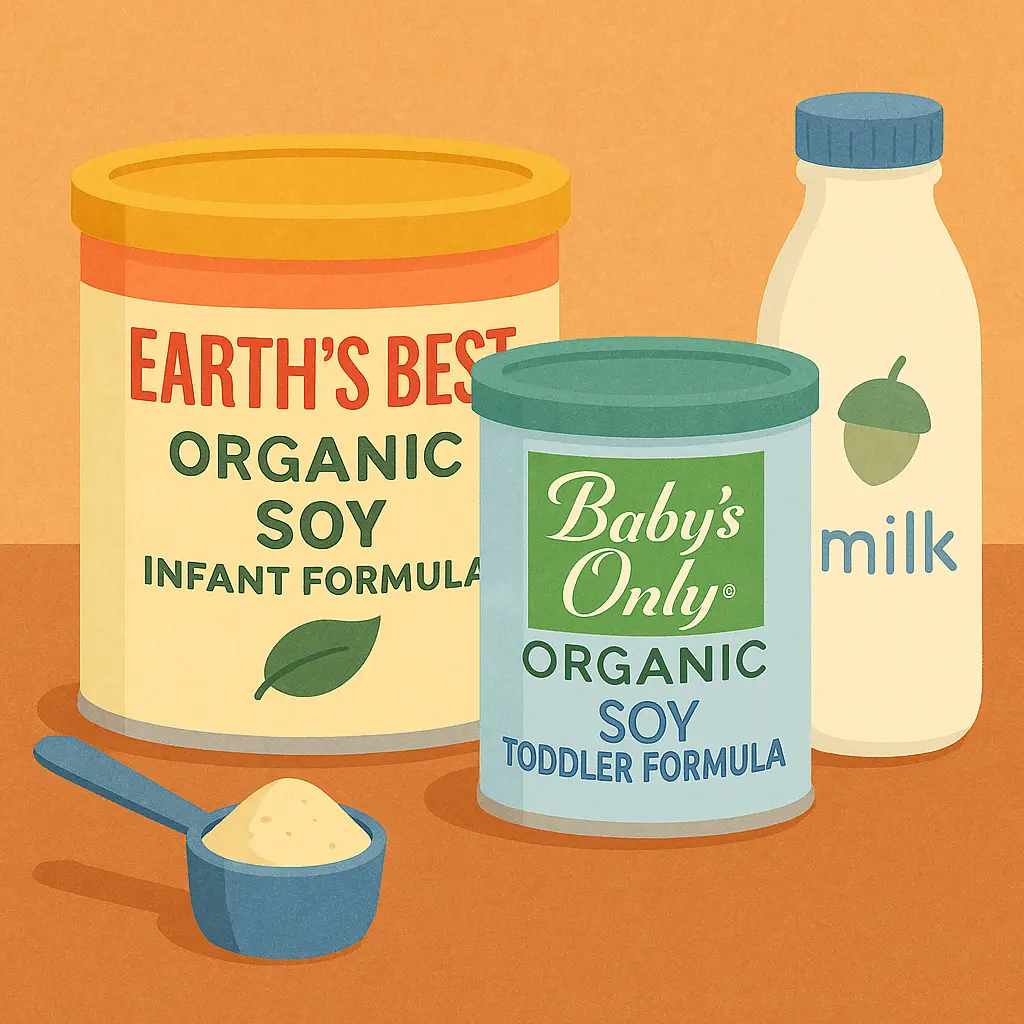Best Vegan Baby Formulas and Their Safety
Choosing a safe vegan baby formula can be challenging for parents seeking plant-based nutrition. This guide explores top options available on the market.

Understanding Vegan Baby Formulas
Vegan baby formulas are designed to meet the dietary needs of infants without using animal products. These formulas are typically based on plant proteins such as soy, pea, or rice. Parents opting for a vegan lifestyle for their infant should consider formulas that provide essential nutrients like vitamin B12, iron, and DHA, often absent in purely plant-based diets.
The rise in demand for vegan products has led to the development of specific vegan-friendly baby formulas. These products are crafted to mimic the nutrient profile of traditional dairy-based formulas while aligning with ethical and dietary preferences. It's essential to verify the nutritional adequacy when choosing a formula, ensuring it contains all necessary vitamins and minerals.
Given the sensitive nature of a baby's nutritional needs, it's crucial to consult with a pediatrician before making any significant dietary changes. This ensures that the chosen formula supports healthy growth and development, providing peace of mind to concerned parents.
Top Vegan Baby Formula Brands
Several brands stand out in the vegan baby formula market, offering reliable and nutritious options. One leading name is Earth's Best, which offers an organic soy-based formula fortified with iron, calcium, and other essential nutrients. This formula is designed to mimic breast milk's nutritional profile, making it a popular choice among vegan parents.
Another reputable brand is Baby's Only Organic, which provides a soy-based toddler formula. While technically marketed for toddlers, many parents use it for infants under pediatric guidance. It's free from GMOs and is fortified with DHA and ARA to support brain and eye development.
For parents seeking a rice-based formula, Little Oak, based in New Zealand, offers a unique option. Although not widely available in every region, it provides a good alternative for babies sensitive to soy.
These brands ensure that their products cater to vegan dietary standards without compromising on essential nutrients. It's important to check availability in your area and ensure that the chosen formula meets your child’s specific nutritional needs.
When purchasing, always look for certifications and consult the brand's official site or trusted retailers for the most accurate product information. Reliable source on vegan formulas.

Nutritional Considerations
Ensuring that a vegan baby formula meets all nutritional needs is paramount. Key nutrients often supplemented in these formulas include vitamins B12, D, and iron, which are critical for infant growth and development. DHA and ARA, important fatty acids, are also included to support neurological development.
Since breast milk naturally provides these nutrients, vegan formulas must artificially include them to align with FDA regulations. It's crucial for parents to understand the ingredient list and the source of these nutrients, especially if they have concerns about synthetic versus natural additives.
Parents should feel empowered to ask their pediatrician about how these formulas compare nutritionally to traditional options. Doing so ensures the decision is made with comprehensive understanding and assurance that their baby is receiving balanced nutrition.
Safety of Vegan Baby Formulas
The safety of vegan baby formulas is a primary concern for parents. These products undergo rigorous testing and must adhere to strict guidelines set by regulatory agencies like the FDA. This ensures that the formula is safe and suitable for infant consumption.
It's advisable for parents to remain informed about recalls or safety notices issued for specific products. Staying updated provides assurance that the chosen formula continues to meet safety standards. Sites like FDA's recall page offer current information on any concerns.
Choosing the Right Formula: Factors to Consider
When selecting a vegan baby formula, several factors come into play, ensuring both the health and satisfaction of your infant. First, consider any known allergies or intolerances your baby might have. Soy is a common base for vegan formulas, but alternatives exist for those with soy allergies.
Price is another factor. Vegan formulas can sometimes be more expensive than traditional options. It's wise to compare brands and consider subscribing to delivery services, which might offer discounts.
- Certifications: Look for USDA organic or Non-GMO Project verification.
- Nutritional Content: Check for added DHA, iron, and calcium.
- Availability: Ensure it’s easily accessible in your area.
Finally, taste and digestibility can be significant. Babies have preferences, and what works for one might not work for another. Experimenting with small quantities initially can save money and help find the best fit for your infant.
The Role of Pediatric Guidance
Pediatricians play a vital role in guiding parents through the process of choosing the right vegan formula. Their expertise can help determine if a particular formula meets the exclusive nutritional needs of an infant, especially in the transition from breastfeeding.
Regular check-ups can provide insights into whether dietary modifications are necessary. Pediatricians often monitor growth patterns and nutrient levels, making adjustments as needed to ensure the baby's health isn't compromised.

Additionally, discussing any concerns or observations with a healthcare professional can lead to more personalized advice. They can recommend specific brands or formulations that align with both your dietary preferences and your baby's health needs. AAP guidelines on infant nutrition.
Environmental and Ethical Considerations
Choosing a vegan baby formula often aligns with broader environmental and ethical beliefs. Vegan formulas generally have a lower environmental impact compared to dairy-based products, as they require fewer natural resources and result in lower greenhouse gas emissions.
Many parents choose vegan formulas as part of a lifestyle commitment to reduce animal exploitation. Ensuring these choices extend to their babies can provide a sense of fulfillment in staying true to these values.
It's not just about the product itself but also the packaging. Sustainable packaging is becoming a highlight for many brands, with companies opting for recyclable materials and reduced plastic use.
Such considerations can also influence brand loyalty, as parents prefer companies that visibly commit to ethical practices. By supporting these brands, consumers contribute to a growing demand for environmentally responsible manufacturing.
These factors often lead parents to research deeply into brand ethics and sustainability, which can be rewarding in making informed and responsible consumer choices.
Conclusion
Choosing the right vegan baby formula involves balancing nutrition, safety, and ethical considerations. With a growing number of options, parents can find suitable formulas that align with their values while ensuring their infant's health and development.
Always prioritize guidance from healthcare professionals when making dietary choices for your baby. Stay informed about product updates and trust in your ability to make decisions that suit your family's unique needs.


